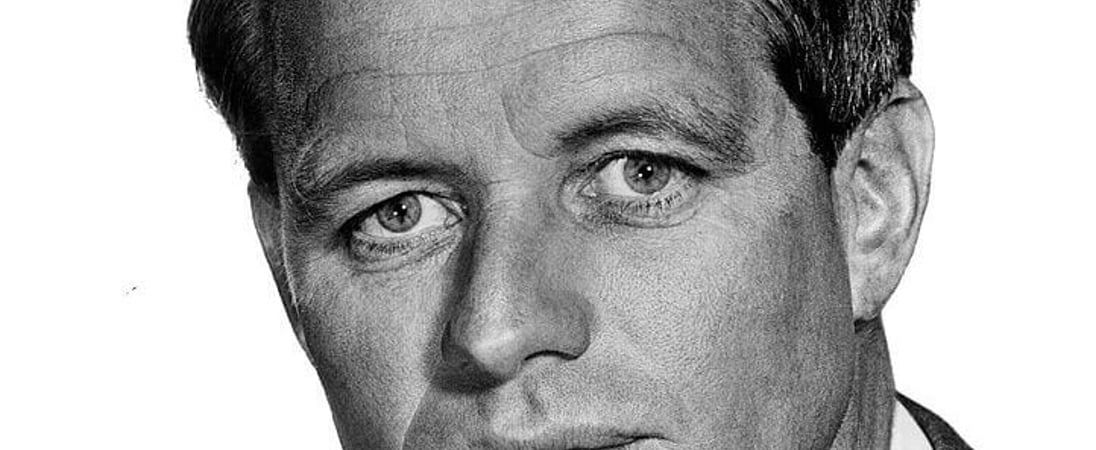
Robert F. Kennedy's birthday
Robert F. Kennedy, born November 20, 1925, was a prominent figure in American politics. He stood out as a passionate advocate for social justice and equality.
His career, marked by dedication and courage, included attorney general and senator roles. Kennedy’s life, though cut short, left a lasting impact on the United States, inspiring many with his vision and commitment to change.
Robert F. Kennedy Early Years
Robert F. Kennedy, often known as Bobby, grew up in a large and influential family. Born in Brookline, Massachusetts, he was the seventh of nine children.
His childhood was a blend of privilege and strict expectations. His father, Joseph P. Kennedy, was a successful businessman ensuring the family lived comfortably.
His mother, Rose, instilled strong values in her children. Bobby attended private schools, learning the importance of discipline and hard work early.
Kennedy’s education was a journey through prestigious institutions. He started at the Dexter School in Brookline, then went to Milton Academy. His time at these schools shaped his early views and character. He later joined Harvard University, but his studies were interrupted by World War II.
During the war, he served in the U.S. Naval Reserve. After his service, Kennedy returned to Harvard, graduating in 1948.
His pursuit of knowledge didn’t stop there. He attended the University of Virginia School of Law, earning his law degree in 1951. This education laid the foundation for his remarkable career in public service.
Robert F. Kennedy’s Triumphs
Notable achievements in public service and personal endeavors marked Robert F. Kennedy’s journey to success.
After completing his law degree, Kennedy embarked on a path that would make him a key player in American politics. His early career saw him working for the U.S. Department of Justice. He quickly gained a reputation for his sharp mind and dedication.
In 1952, Kennedy managed his brother John F. Kennedy’s successful Senate campaign. This experience not only showed his strategic skills but also strengthened the bond between the Kennedy brothers.
Later, as attorney general in his brother’s administration, he was crucial in addressing civil rights issues. His efforts to combat organized crime and his advocacy for racial equality significantly contributed to this period.
Kennedy’s commitment to social causes was unwavering. He tirelessly worked for the underprivileged and spoke against injustice. His senatorial tenure, beginning in 1965, allowed him to further these causes. Kennedy’s speeches, filled with hope and determination, resonated with many Americans.
Robert F. Kennedy was not just a political figure but also an author. His book, “Thirteen Days: A Memoir of the Cuban Missile Crisis,” is particularly notable.
Published posthumously in 1969, this book offers an insider’s perspective on the intense and critical period of the Cuban Missile Crisis in October 1962. It provides a detailed account of the discussions and strategies within the Kennedy administration during this tense time in global politics.
Aside from his political achievements, Kennedy was a family man. He married Ethel Skakel in 1950, and they had 11 children.
His role as a father was as important to him as his public responsibilities. Kennedy’s personal life was deeply intertwined with his public persona, demonstrating his values of family, loyalty, and compassion.
Kennedy’s life was tragically cut short in 1968, but his legacy endures. His commitment to justice and equality continues to inspire generations.
Interesting Facts About Robert F. Kennedy
Early Passion for Writing: Kennedy had a keen interest in writing and kept detailed journals during his travels in Europe as a teenager.
Naval Enlistment Choice: He joined the Navy in 1944, against his father’s wish for him to stay out of combat during World War II.
Athletic Pursuits: At Harvard, Kennedy was the football team manager and showed a strong passion for sports.
Campaign Trail Innovator: He pioneered the use of television for political campaigns, understanding its power early on.
Cultural Interests: He deeply appreciated history and culture, often visiting museums and historical sites.
Legal Career Start: His first legal job was at the Justice Department, working in the Criminal Division.
Commitment to Education Reform: As a senator, he was deeply involved in education reform, focusing on equal opportunities for all.
Also on this date...
Use Less Stuff Day
Cutting back on things, like a green champ! It's like giving Earth a high-five, all while making life simpler and cooler.




